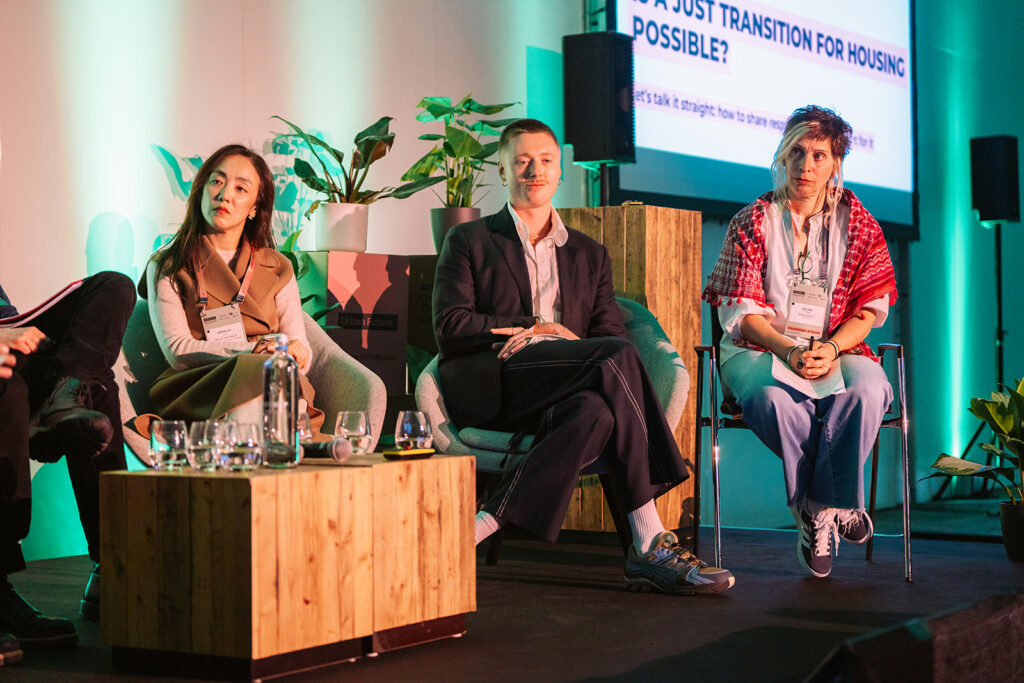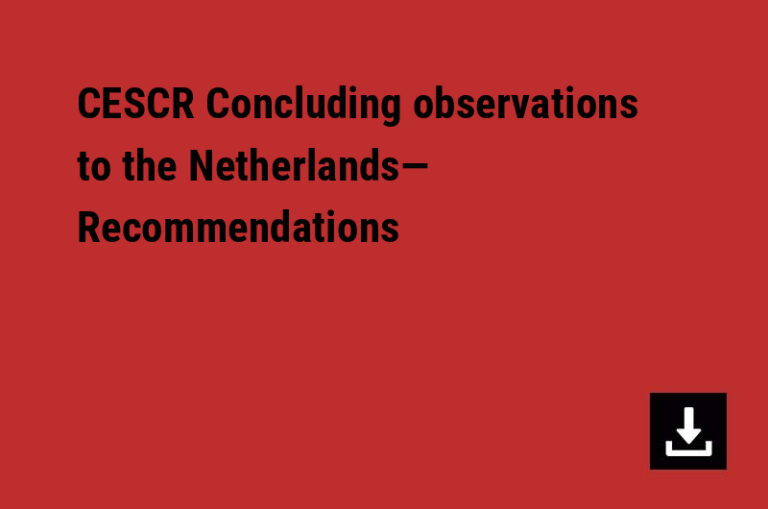By Kirsten McRae
The world is facing two dire crises; the global housing crisis and the climate crisis. The urgency of these crises cannot be overstated. Today, 1.8 billion people worldwide lack access to adequate housing, while in Europe alone, 80 million people face housing unaffordability. Simultaneously, to limit global warming to 1.5°C, we must halve greenhouse gas emissions in the built environment by 2030 and achieve net zero by 2050.
This June, The Shift attended the Urban Future conference in Rotterdam, Europe’s leading event for urban sustainability to better understand how different sectors are approaching the twin crises of housing and climate change.
Global Director Leilani Farha spoke on a panel titled, “Is a Just Transition for Housing Possible?”, which explored responsibility at the intersection of housing rights, environmental protection, and social equity. Leilani emphasized that human rights must be the foundation of all housing solutions, regardless of whether initiatives come from industry, government, or the financial sector. This rights-based approach, she argued, is essential to ensure solutions benefit everyone and hold major actors accountable.
Throughout the conference, it became clear that no single sector – be it government, industry, or finance – can solve these crises alone. Human rights extend to all, and all sectors must be part of the solution. However, progress has been slow. Despite housing being valued at US$258.5 trillion, making it Earth’s most valuable asset class, efforts to decarbonize housing often only tinker at the margins. For instance, while energy efficiency spending reached an unprecedented USD 237 billion in 2021, it was far outweighed by USD 5.8 trillion in increased construction and building intensity.
In light of the global nature of the crises and the need to move governments and industry, The Shift believes that as NGOs we need to collaborate more to address this gap and drive industry and policy change. To this end, we organized a workshop alongside the conference, bringing together diverse stakeholders from across Europe, including grassroots tenant organizations and community land trusts. Our goal was to develop a unifying narrative connecting climate action and housing rights, aimed at motivating industry leaders to take concrete steps toward sustainable and equitable housing practices.
This collaborative effort underscored the importance of a united front in addressing housing insecurity and climate change. The insights gained will inform The Shift’s ongoing work to promote housing rights within the context of sustainable development.



